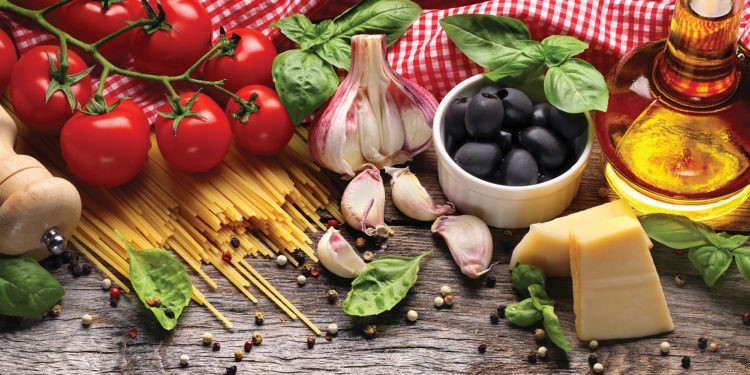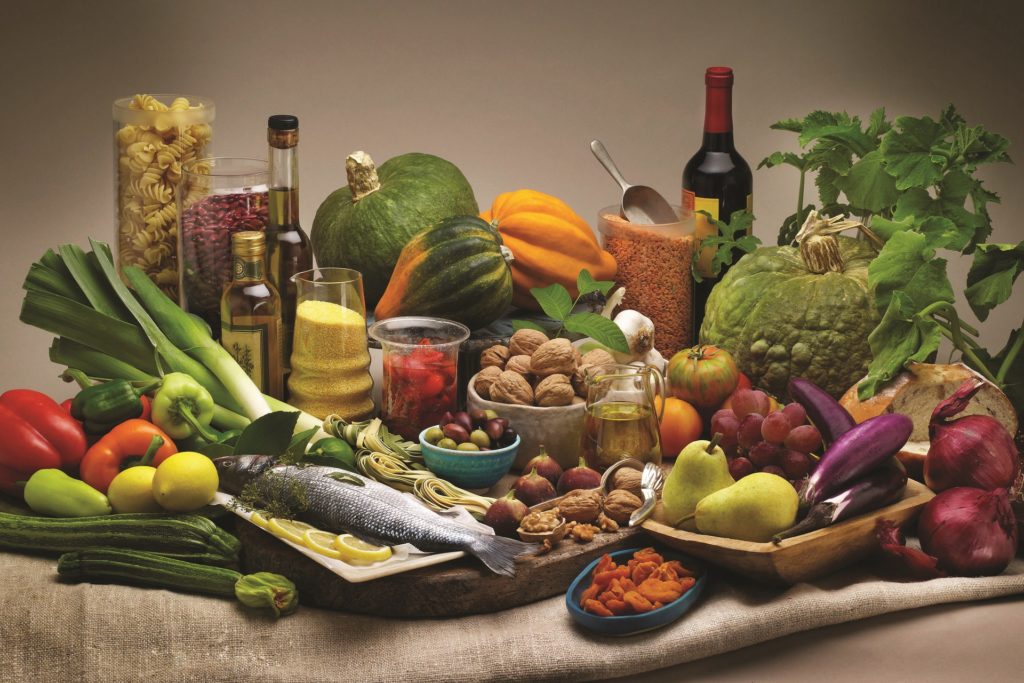The Mediterranean Diet

Making good food choices is a solid investment in your overall health and vitality.
There are so many reasons to be excited about the month of May. Flowers are in bloom; the air is warmer; the sun seems to shine more brightly; and thoughts of summer vacation are undoubtedly on the minds of many. However, May is also a month of celebrations, including National Mediterranean Diet Month, created by the Mediterranean Foods Alliance and designed to inspire awareness about the amazing and delicious foods that make up this lifestyle eating plan that are not only flavorful, accessible and affordable, but also extremely healthy.
As one who has somewhat dabbled in this diet (and I say that because I typically incorporate foods from the plan into my daily menu but am not consistently rigid about it), I have come to realize perhaps the word “diet” is not appropriate in this matter, as it suggests restrictions and not-so-desirable food items. The Mediterranean Diet is one that truly awakens your taste buds and makes you feel healthy and energetic, as you know that in addition to looking forward to each meal, you are also doing wonders for your body and health.

What exactly does the Mediterranean diet emphasize? In short, it supports eating primarily plant-based foods, such as fruits and vegetables, along with whole grains, nuts and legumes. Instead of using butter, stock up on olive oil and canola oil, which bring in the healthy fats. Herbs and spices can replace salt to add the decided flavor to your food. Additionally, this diet features lean sources of protein found in fish and poultry, and even red wine (gasp!) is encouraged, but in moderate amounts.
According to eatingwell.com, the research behind this diet suggests consuming the foods within the plan on a consistent basis can lead to weight loss, better control of blood glucose (sugar) levels and reduced risk of depression. This diet has also been associated with reduced levels of inflammation, a significant risk factor for heart attack, stroke and Alzheimer’s disease. As with any diet, portion control plays a strong role in this diet. Eating the Mediterranean way emphasizes the consumption of more fish (salmon) in healthy three-ounce portions, along with vegetables, whole grains (brown rice), heart healthy fats, nuts and oils, as opposed to saturated fats like butter.
Even though it may seem overwhelming to even begin a diet such as this, it is much easier than you might think. The following tips should comfortably get you started on your way to improved health and vitality while living the Mediterranean way.
- Replace butter and margarine with healthy oils whenever possible. Olive oil is a great source of heart-healthy monounsaturated fats, which can be used for cooking and baking. Incorporated a high-quality extra-virgin olive oil, seasoned with balsamic vinegar, for use when dipping bread. Canola and walnut oils are also rich with heart-healthy monounsaturated and beneficial omega-3 fatty acids.
- Instead of red meat, use turkey, skinless chicken, fish, beans, nuts and other plants. Start with eating fish twice a week. Salmon and tuna are great choices for their omega-3 benefits, which is linked to improved heart health.
- If you like to snack, reach for veggies throughout the day and choose them in a variety of colors to get a wide range of antioxidants and vitamins.
- You can still have bread, pasta and rice, but make sure those are of the whole-grain variety and not refined. Quinoa is an excellent choice, as is a hot bowl of oatmeal. The word “whole” or “whole grain” should be the first ingredient listed on the food package.
- Other great snacks include nuts, seeds and low-fat cheese and dairy products. Almonds, walnuts and sunflower seeds make a great pick-me-up in the middle of the day.
- Even if you have a sweet tooth, dessert is still on the menu! Grab a piece of fresh fruit, known for its fiber, vitamin C and antioxidants. Drizzle a bit of honey on some slices of pear or sprinkle a bit of brown sugar on some grapefruit for added pizzazz.
- And what’s a good evening meal without a nice glass of wine or a refreshing beer? Yes, it is possible to have some libations in moderation, which translates to 12 ounces of beer, five ounces of wine or 1 ½ ounces of liquor.
Above all, remember to savor every bite while you eat. Not only will this allow you to take the time to relax, you will also become more in tune with what your body needs and you will then be able to honor your body’s hunger and fullness signals more effectively. Remember! This is not a diet in as much as it is a lifestyle, and one that should give you the opportunity to enjoy it for many years to come.



